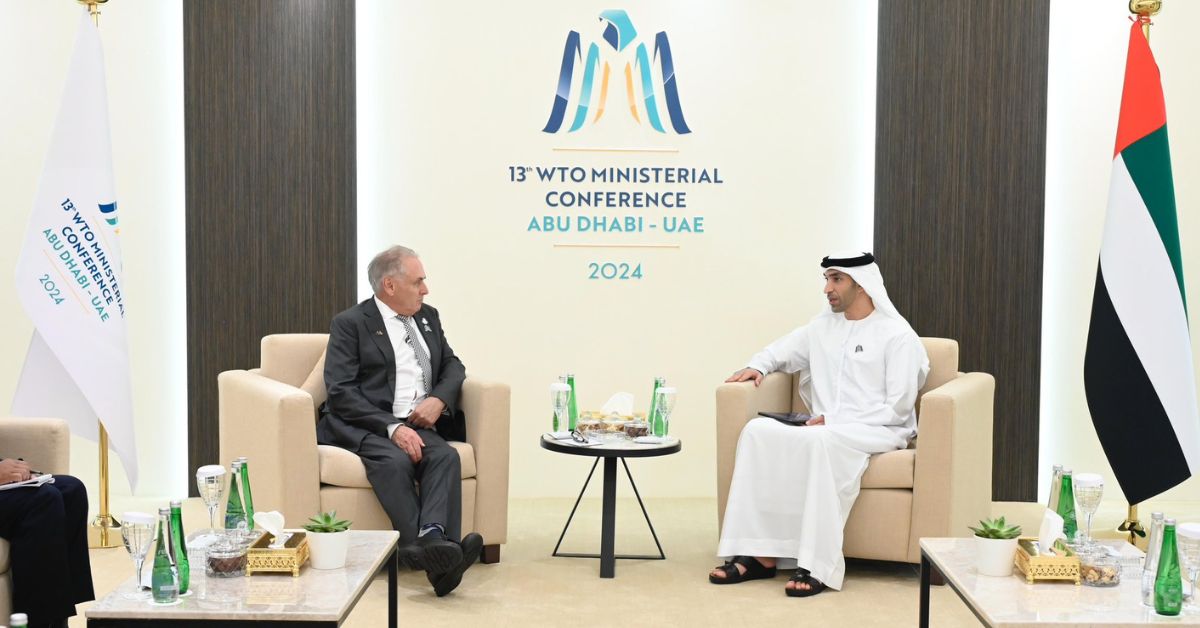ABU DHABI — Agricultural trade reforms at the World Trade Organization (WTO) are crucial for achieving global food security, climate, and biodiversity objectives, said Don Farrell, Australia’s Minister for Trade and Tourism.
“Agricultural reform is significant for Australia. We believe that free and fair trade in agriculture is key to lifting people out of poverty worldwide,” added Farrell, leading the Australian delegation to the WTO’s 13th Ministerial Conference (MC13) in Abu Dhabi.
In a conversation with WAM, he proposed finding a path forward in agriculture that enhances long-term food security for the most vulnerable.
“Australia maintains that global food security, climate, and biodiversity targets are unattainable without progress in agricultural trade reform, including the reduction of environmentally detrimental subsidies,” he said.
Exciting Experience
Reflecting on his participation in MC13, Minister Farrell shared, “The UAE has been outstanding. Abu Dhabi is a stunning city, and the UAE is a remarkable country. I’m thrilled to be here.”
With the UAE and Australia initiating negotiations last December on the Comprehensive Economic Partnership Agreement (CEPA) to boost trade and investment, “we aim to advance on this front,” the minister said.
He voiced optimism that CEPA might be finalized this year.
“A trade agreement with the UAE will solidify our bond with one of the most vital trade and investment partners in the Middle East. It’s a chance to strengthen our collaboration in tackling global economic issues and our collective goal of transitioning to net-zero emissions.”
Other Priorities
At MC13, Australia anticipates advancements in talks on the dispute settlement process, fisheries subsidies, and the extension of the moratorium on imposing customs duties on electronic transmissions, Minister Farrell noted.
“We very much support free trade. As an island nation, our prosperity hinges on expanding fair trade worldwide,” he commented.
Regarding negotiations on the dispute settlement procedure, he stated, “We haven’t abandoned the prospect of progress. From Australia’s perspective, we’ll be pushing very hard to establish an appellate process. We believe the system functions optimally when it includes an appellate procedure as part of the WTO rules.”
He noted some progress on fisheries subsidies at MC12 and anticipated further advancements in Abu Dhabi.
Farrell expressed his approval of Timor-Leste and Comoros joining the WTO, which was formally declared on the first day of MC13.
“Timor-Leste is a close regional ally, and its accession to the WTO could significantly contribute to the country’s economic resilience, diversification, and private sector development by enhancing integration with the regional and global economy,” he explained.
Approximately 164 nations and trade blocs are attending the Ministerial Conference, the WTO’s highest decision-making group, which typically convenes every two years.








